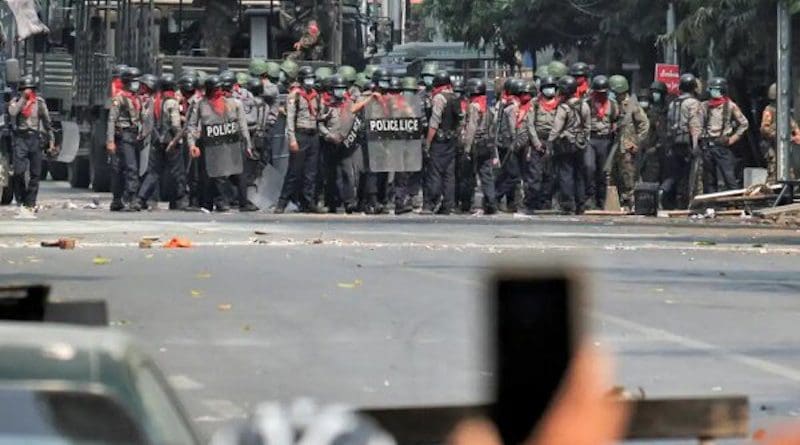How To Prevent Civil War In Myanmar – OpEd
By Arab News
By Dr. Azeem Ibrahim*
Russia has emerged over the past month as a supporter of the military leadership behind the takeover in Myanmar. Moscow does not have ties to the area, and Myanmar does not figure in any coherent geopolitical game plan. But the junta leaders — international pariahs who are shunned even by Beijing and Thailand — still need weapons to crack down on civilian resistance to the coup.
Thus Moscow has a perfect business opportunity to sell weapons to a regime that is desperate, while also frustrating the efforts of the international community to pressure the military to step aside and let the people of Myanmar govern themselves democratically. For Moscow, this is a win-win.
The alarming parallel here is with the situation in Syria. The genocidal Assad regime was on its last legs, and almost as internationally isolated, when Russia came into the conflict and cemented Assad’s position. In Myanmar, Moscow seems equally happy to butt in to the conflict on the side of a losing authoritarian regime, helping to pave the way for a civil war that could last virtually indefinitely.
And as Myanmar’s civilians form militias to fight the army, civil war is looking increasingly likely by the day. If the international community is to succeed in any last-ditch effort by to prevent Myanmar collapsing into a failed state like Syria, the role Moscow plays in this dynamic has to be uppermost in everyone’s minds.
Normally, this would be where the US and its Western allies could be expected to enter with some kind of diplomatic overtures to Moscow. But if we have learnt anything over the past decade, it is that Russian President Vladimir Putin will refuse to yield to any diplomatic effort by countries he considers “enemies.” Strange as it sounds, the only player that might be successful in a bid to stop the brewing civil war is China.
Beijing and Moscow still retain close, if somewhat competitive, ties, but crucially Beijing does maintain a huge degree of economic leverage over Moscow, both as a client for Russian natural gas, and as an investor in infrastructure for the Chinese Belt and Road trade network.
Fortunately, Beijing also has every incentive to try to prevent a civil war on its southern border, not least because it could reasonably expect an influx of millions of refugees if conflict breaks out. Plus, Beijing has considerable Belt and Road investments in Myanmar as well, and all that would come to naught if the country descends into a protracted civil war. On top of that, there is also the prospect of knock-on instability in other already fragile countries in the region, which could also pose further risks for Beijing.
The main concern is that China lacks the instinct and experience to intervene in these kinds of disputes in order to mediate and pre-empt such calamities. So it will be the West that will have to persuade and support Beijing in any effort to cordon off Russia from the conflict zone and maintain pressure on the Myanmar regime.
However, if the West approaches Beijing for this purpose, the reception is likely to be automatically suspicious. So we find ourselves in a situation where civil war is still avoidable, but mistrust between international powers stands in the way of common sense measures to prevent the worst possible outcome.
• Dr. Azeem Ibrahim is a director at the Newlines Institute for Strategy and Policy in Washington and research professor at the Strategic Studies Institute US Army War College. Twitter: @AzeemIbrahim

